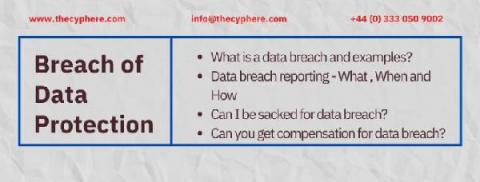Securing your code: GDPR best practices for application security
GDPR best practices often focus on how to process and manage personal data, but companies should also consider application security to ensure compliance. The standard cliché used to be that you are what you eat. Which remains true, of course. But it’s also incomplete—so last century. Today, you are what you do online, which is almost everything.






